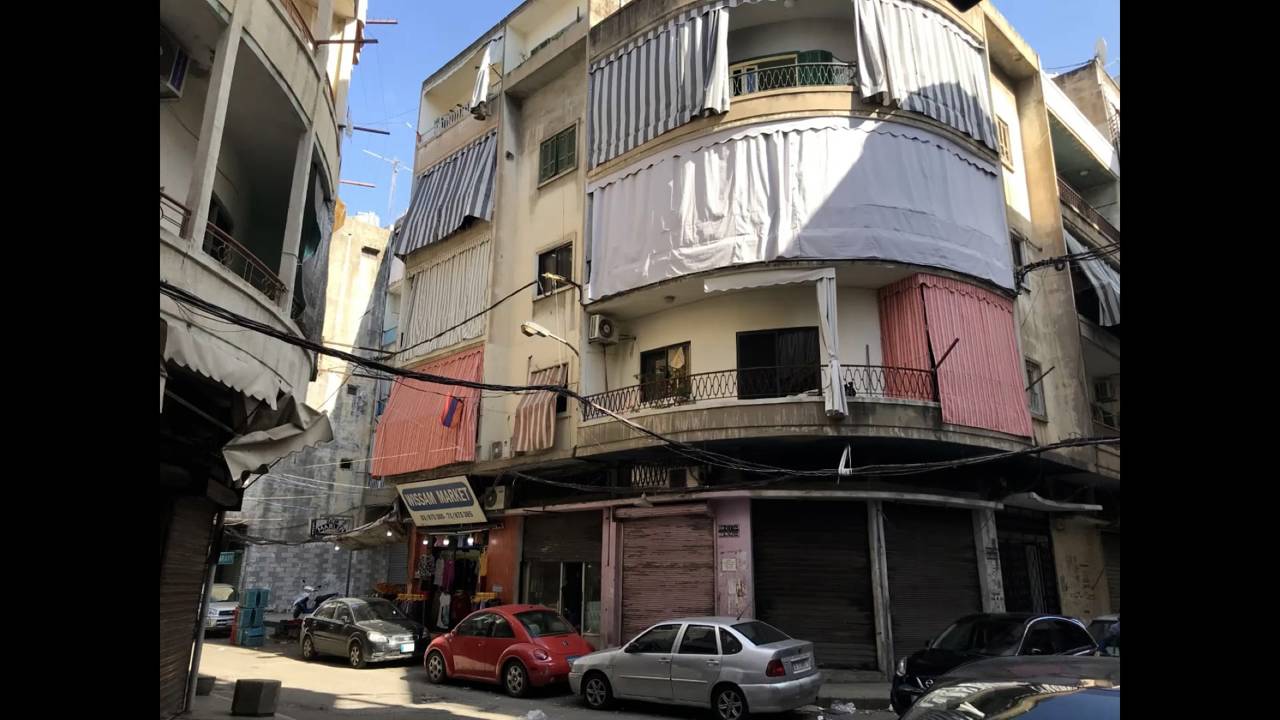Jad El Khoury, a Lebanese artist and architect, presented his artistic practice and held a workshop at PRIO in November. It was based on recent work being exhibited at the STRAAT Museum in Amsterdam. Jad's work has been shown internationally and he received the prestigious Arte Laguna Prize in 2019.
Jad's practice often uses public spaces, inviting the audience to think beyond the reality they are familiar with. His background in architecture has influenced most of his artistic interventions. Jad presented two of his earlier works at the event in Oslo, in which he uses buildings in Beirut with traces of war, that hold significance in the collective memory of the Lebanese people. He refers to these as "accidental monuments". In these interventions, Jad uses elements of performance art and activism to highlight traces of war and challenge collective memory.
He focused on his art installation, 'The Tower of Wind', where he installed traditional style curtains found across Beirut in a historical highrise building. The curtains danced in the wind for the week of the installation, drawing attention to the tower and providing colour to it. The symbolic nature of the building – an ambitious development project turned into a snipper base during the war, then a place of torture and army base – resulted in the 'Tower of Wind' going beyond aesthetics to combine politics, art, collective memory, and hope.
Jad is sensitive to serendipities, and he describes the coincidences that have shaped his journey: A Norwegian flag on a t-shirt when he was in between two life choices – to move to Oslo to study or to stay in Beirut and support his community after the 2020 port explosion.
A winking house – about to be demolished but standing sassily 'winking' with strips of material similar to the ones Jad works within one window – through Jad's art project finding its winking owner, a Norwegian veteran who had been stationed in Lebanon and after return suffered a stroke that paralyzed him on one eye. Introducing the workshop, Jad discussed his artwork 'Care portal' which featured a large shutter door from Beirut, ridden with bullet holes. With this piece, Jad continues to explore the interplay between the public space and the audience and the transformation of collective memory. Visitors at the exhibition were invited to write messages of hope for those affected by the conflict on post-it notes and place them in the bullet holes of the grey shutter, transforming it into a "colorful panorama of hope". Jad hopes that this art piece can encourage serendipities. The STRAAT museum has been sending Jad boxes filled with post-its – the contents of one of these boxes ended up on the floor of PRIO.
Event attendees were encouraged to read through a pile of messages, think individually, select messages that stood out for them and discuss them with one another. As part of his art project, the workshop led to interesting discussions on what it means to witness war, suffering, loss, and the nature of responses. While participants identified considerable levels of 'toxic positivity', they also observed a great focus on Ukraine. Jad noted that most messages placed the writer of the message as an outsider to the events they were asked to respond to. Among the exceptions to these observations was a message that read 'sorry we were not able to protect you'. Others responded creatively, contributing drawings and origami cranes.






